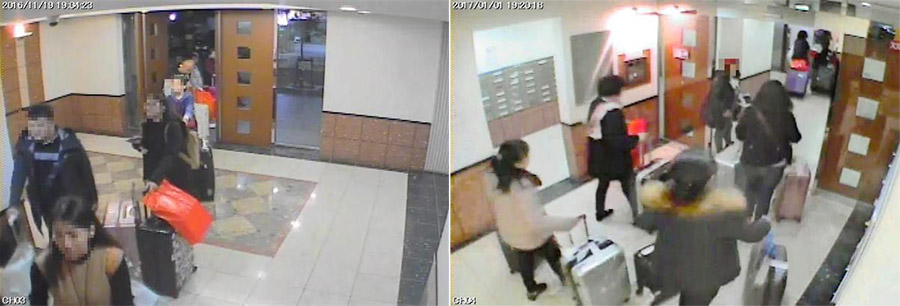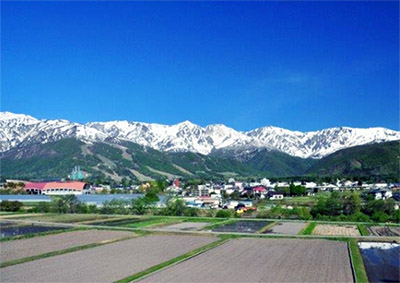Shinjuku plans to ban short-term accommodation on weekdays
Tokyo’s Shinjuku district is finalizing plans that will impose stricter limitations on short-term accommodation in some residential zones. The city is currently in the process of seeking public comments that will help shape the final regulations.
Under the proposal, properties located in exclusive residential zones cannot be let out to guests from Monday through Thursday, limiting the maximum allowable nights per year to 156, below the national government’s proposed limit of 180 nights per year.
What are exclusive residential zones?Read more
Japan's short-stay law to be delayed 6 months
Those hoping to rent out their home legally on a short-term basis in Japan may have to wait a little longer as the government has delayed the de-regulation of the home sharing market until June 2018. According to the Japan Tourism Agency, the reason for the delay is to allow more time for local governments to formulate their own rules regarding the maximum number of nights permissible each year.
The government passed a law allowing short-term letting of homes and apartments in June 2017, with the rules initially expected to go into effect from January 2018.
Read more
32 million Yen lawsuit filed against illegal Airbnb hosts in Osaka apartment building

The owners association of a condominium in Osaka’s Minami district have filed a lawsuit with the Osaka District Court seeking 32,670,000 Yen (approx. 300,000 USD) in damages from hosts providing illegal overnight accommodation in the building.
According to the association, 5 of the 100 apartments in the 10 year old building have been rented out to overnight guests using online booking sites, contravening the building management bylaws. The association made attempts to have the hosts, who also owned the apartments, stop the activity by imposing fines of 50,000 Yen per day and putting up posters in the building. However, their attempts were ignored.
Local groups seek ban on unlicensed short-term letting in Hakuba

Hakuba’s local tourism associations are seeking a ban on short-term Airbnb-type accommodation because it could threaten the already-low operational rates of the village’s existing inns and hotels.
Hakuba’s Kirikubo and Shinden districts at the foot of the Hakuba Iwatake Ski Resort have 68 licensed lodgings that have operating ratios of around 15 ~ 20%, as reported by the Iwatake Tourism Association. The president of the Association says the village already has enough accommodation options for foreign and domestic tourists and believes that the new model of short-term Airbnb-type lettings is something more suited to a large city.
Neighbours file dispute over new apartment building in Tokyo’s Shibaura district
The Sankei Shimbun has reported that residents of a 14-storey, 36-year old condominium near Shinagawa Station in Tokyo’s Minato-ku have filed a complaint with the Tokyo Metropolitan Government seeking the cancelling of the building permit for a project under construction on an adjoining lot.
The neighboring building is being built on land that was once part of the older condominium’s lot. The land was sold off, making the existing apartment building oversized for the lot based on floor-area ratios, and technically a non-compliant structure. As a non-compliant structure, local authorities may sometimes have the power to issue a forced demolition order, although these are rarely enforced.Read more
B&B host ordered to pay landlord 700,000 Yen
The host of an illegal B&B operating out of an apartment building in Osaka has been ordered to pay 700,000 Yen (approx. 6,360 USD) in compensation to their landlord. The owner of the apartment building filed a suit in the Osaka District Court seeking 1,400,000 Yen from the tenant who was illegally subletting the apartment to tourists.
According to the landlord, the 41 square meter apartment was rented to a company based in Kyoto. The terms of the lease agreement limited the use of the apartment to residential only and prohibited any form of sub-leasing.Read more
Floor space ratios may be relaxed for pre-1981 buildings in Tokyo

The Tokyo Metropolitan Government is considering introducing regulations that would relax floor-space ratios when redeveloping old apartment buildings in the city. This would allow for the additional space to be sold by a real estate developer, which would help to cover the costs of redevelopment.
The target of the revision is condo-style apartment buildings that were built to the old earthquake codes (kyu-taishin). The major change to earthquake codes occurred in May 1981, with buildings built after this date meeting the current codes. Due to the time period from construction to completion, there are some buildings from 1982 that may have been built to the old ‘kyu-taishin’ codes.Read more
